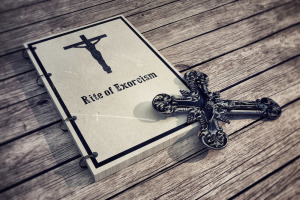'Freethinking' vs. faith: Which one brings true freedom?

Freethinking sounds liberating and sophisticated. It is the practice of thinking independently of “authority or tradition.” Dictionary.com defines a “freethinker” as “a person who forms opinions on the basis of reason, independent of authority or tradition, especially a person whose religious opinions differ from established belief.”
By definition, a freethinker should make up one’s own mind independently of “authority and tradition” by utilizing reason. I believe that freethinking, however, has sadly become a cultural ideology that keeps people from a rational consideration of discovering genuine freedom in Christian faith.
There are variations in the nuancing of freethinking even among liberal thinkers. Some stress the concept of individualism whereby each person has the right to pursue their own flourishing, independent of collective and societal impositions. Nevertheless the principle of freethinking continues to stress thinking that will consider almost anything except theism. This authoritative presupposition restricts freethinking and in cultural thought the presupposition has become a non-negotiable. Thus freethinking is not truly unfettered.
Christopher Hitchens was a prime example of a “cultural freethinker” who promoted freethinking as the opposition to faith. In The Portable Atheist, he introduced the anthology by noting that, “It is often unconsciously assumed that religious faith is somehow conservative and that atheism or ‘freethinking’ are a part of the liberal tradition.”[1] His choice of essays for nonbelievers fueled this cultural divide by encouraging people to read literature that was strictly skewed toward skepticism. As Hitchens said, “It is in the hope of strengthening and arming the resistance to the faith-based, and to faith itself, that this anthology of combat with humanity’s oldest enemy is respectfully offered.”[2] In other words, freethinking is still worth nurturing because the “faith-based” continue to require “resistance.”
Such rhetoric is typical of the persisting cultural narrative that the Christian faith (in particular) must be debilitated of any legitimacy in the public square. Reason is massaged to shape cultural thought and the ensuing narrative is encouraged as the standard position in pedagogy. This is how freethinking has become a particular brand in Western culture rather than a process of genuine reasoning. Moreover, it subconsciously intimidates society to comply with its “authority.” In culture, Christian faith is now largely assessed by these intimidating forces, and yet the Good News continues to invite, challenge, convict, and compel people.
For centuries, Christian thought has tolerated and engaged every hard question in the highest academic circles. Let’s be reminded that the world’s most famous university was founded by committed Christians. They wanted students to experience academic excellence while considering Christian faith. In Finding God at Harvard, we read:
From the beginning, Harvard had the good liberal sense not to require Christian faith of its students but to nurture their freedom for the search. The foremost historian of Harvard, Samuel Eliot Morison, wrote: ‘Our founders knew from their English experience that oaths were powerless to bind conscience.’[3]
The founders knew that “authority or tradition” could not be imposed to produce genuine Christian faith. Even so, reason was promoted as a tool to help students think and hopefully arrive at a personal ownership of the Christian faith.
A motif that runs throughout the Bible is humanity’s freedom to think and choose the Lord for itself. “And if it is evil in your eyes to serve the Lord, choose this day whom you will serve” (Josh. 24:15). After a teaching session of Jesus, “many of his disciples turned back and no longer walked with him. So Jesus said to the twelve, ‘do you want to go away as well’” (John 6:66-67)? Simon Peter replied, “we have believed, and have come to know, that you are the Holy One of God” (John 6:69). This coming “to know,” or knowingness, is a rational process that arrives at conviction by thinking, learning and experiencing. “Cultural freethinkers” would have us believe that Christian faith is a blind commitment to “tradition and authority,” and when placed under the scrutiny of reason it crumbles. This thinking couldn’t be any further from the truth.
At Harvard Medical School, a student committed to atheistic thought was offered Christian faith by some of his peers. In his own words,
I grew up an atheist ... During my first semester at Harvard Medical School, at the suggestion of Christian friends and acquaintances, I began to examine the Bible and to investigate the Christian faith. It was a reasonable request ... I saw the distortions and misquotations of those who argued against the Christian faith, and I saw the philosophical and historical evidences for Christianity ... In turning my life over to Christ, I had experienced what Christians call the miracle of the new birth ...[4]
Evidently, civil conversation is possible and unfettered freethinking should welcome invitations to think about Christian faith for oneself and to establish one’s own convictions.
The offer to investigate the grace of God continues to be roadblocked by cultural misinformation. Excuses are made in the name of rationality, evidence, and scientific exploration, but ironically these are often satisfied when Christian faith is genuinely explored. The reality is that “cultural freethinking” has come to believe that such an exercise is not worth the risk of losing one’s autonomy. In these times of rising emotional unrest, hopelessness and more questions than answers, a “cultural freethinker” should be accepting the offer to think personally about the promises of Jesus: “Come to me, all who labor and are heavy laden, and I will give you rest” (Matt. 11:28).
Independent thinking from “cultural freethinking” may discover peace, joy and ultimate fulfillment in the grace of God. Jesus did promise that, “if the Son sets you free, you will be free indeed” (John 8:36).
1. Selected essays by Christopher Hitchens, The Portable Atheist: Selected Readings for the Nonbeliever (Philadelphia: Da Capo Press, 2007), xxiv. Italics are mine.
2. Ibid., xxvi.
3. Kelly Monroe, Ed. Finding God at Harvard: Spiritual Journeys of Thinking Christians (Grand Rapids: Zondervan, 1996), 14. Italics are mine.
4. Ibid., Michael Yang, M.D., Ph.D., “He Sent His Word and Healed Them,” (122-127).
Marlon De Blasio is a cultural apologist, Christian writer and author of Discerning Culture. He lives in Toronto with his family. Follow him at MarlonDeBlasio@Twitter




























